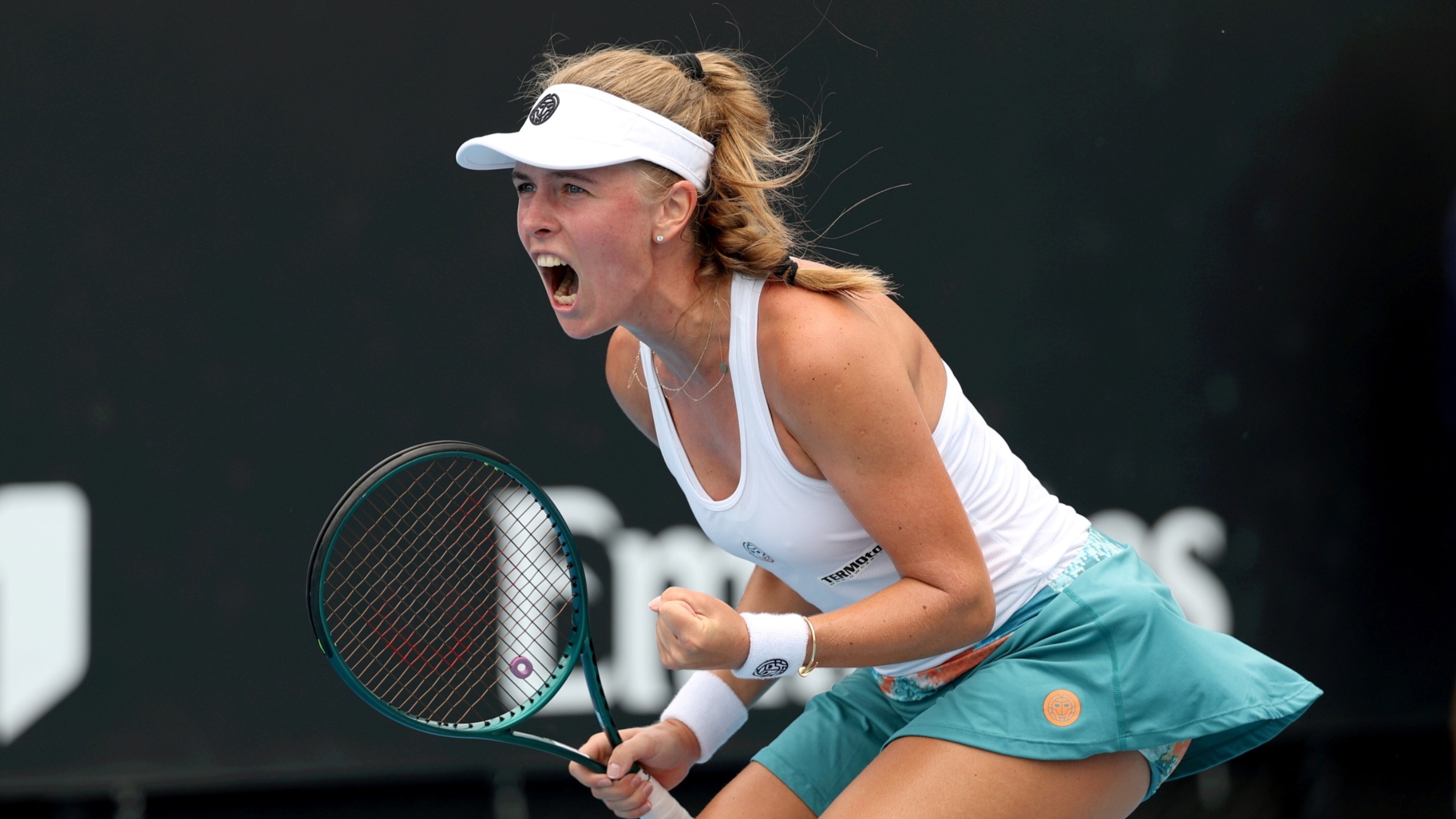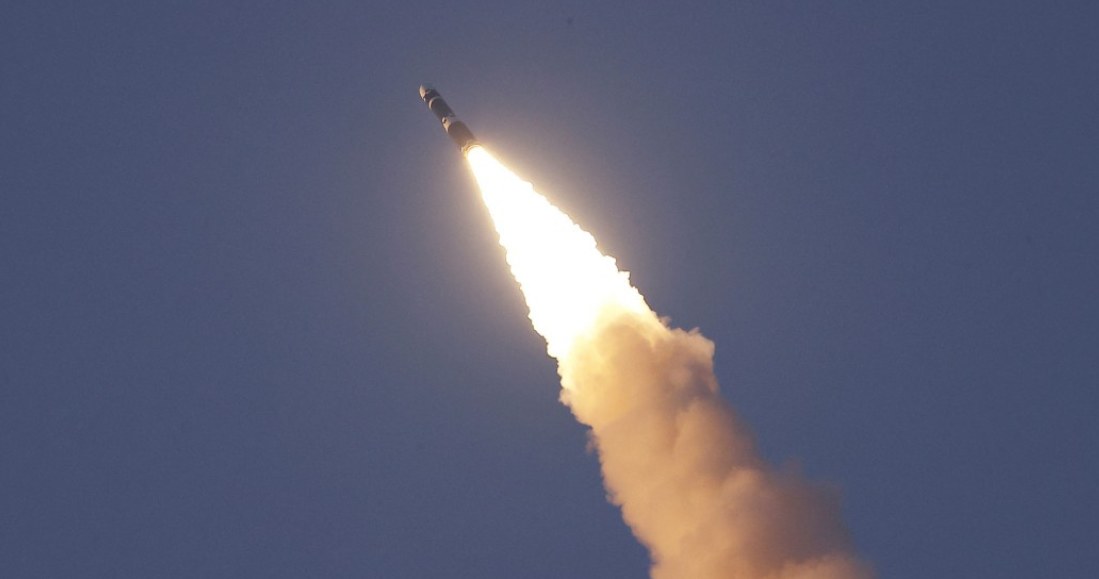Nearly 10 million Ukrainians have, or risk getting, a mental health condition, according to the World Health Organization. (C1)
The physical scars of Russia’s 2022 invasion of Ukraine are often laid out in painstaking detail — the blood, the gore, the shattered towns and the leveled buildings are p lain to see.
Less clear at first sight, however, is the mental burden the ongoing war has caused for many Ukrainians, both within the borders of the battle-scarred country and elsewhere across the globe.
Nearly 10 million Ukrainians are thought to be at risk of, or are living with, a mental health condition in the country, the World Health Organization (WHO) evaluated in March 2024.
“A fast-growing need for mental health and psychosocial support services has called for a strong response and innovative solutions from health authorities,” the WHO said.
One team, steered by seasoned Israeli trauma expert Professor Mooli Lahad, is hoping to be part of the answer to this increasing demand for support for people struggling with post-traumatic stress disorder (PTSD) and the lasting effects of war.
Lahad is at the helm of a program designed to hand ordinary citizens the tools to equip Ukrainians uprooted from their lives with ways to cope. He hopes a little bit of training can go a long way to assisting swathes of people affected by trauma when there are so few, fully qualified professionals available to help.
“We believe that what we teach is transferable,” Lahad told Newsweek, adding that his program is crafted so that knowledge can be passed down from trainers to trainees, who then take up the baton to share their newly acquired knowledge to others.
‘We Heard Full Stories of Their Escape’
One prong of the effort is based out of Poland, pulled together with the local branch of the nonprofit European Leadership Network.
Poland opened its doors to Ukrainian refugees in early 2022, and nearly one million had fled to Poland by the end of 2023. Many millions more passed through the country to travel onward.
While no longer in Ukraine, the experience of war was not left behind when they fled. This is something Beata Zwierzyńska knows very well.
Beata founded a group of volunteers from Poland and Ukraine, in the central Polish city of Zduńska Wola, to help those escaping the war. Starting with providing necessities for Ukrainian women and children fleeing the violence, Beata was then part of the push to offer psychological support to Ukrainians suffering from PTSD.
For the first weeks of the conflict, she recalled, Beata and her fellow volunteers handing out supplies to recently arrived Ukrainians could not distinguish symptoms of trauma among the visitors.
Before long, “we heard full stories of their escape,” Beata, who took part in Lahad’s Master Training program, told Newsweek. “They showed us pictures of the houses, [apartments] that were destroyed, or their families that were left behind.”
Crucially, she did not have the skills to help beyond providing physical supplies, she said. However, after receiving Lahad’s training, “our eyes opened,” she said.
“We could identify one by one; you know what was happening, exactly what our reaction should be,” Beata said.
The training is tailored, Lahad said. Sometimes it means offering a resource toolkit for complete beginners, and for others, such as community workers or school teachers, the instruction is designed to beef up the skills they already have.
It blends theory with practical training, complete with mentors and supervisors, and is largely based on what he has termed BASIC PH, a model formulated to help understand how people process trauma. The model focuses on trying to alleviate symptoms of anxiety and trauma, giving back a sense of control over their lives.
‘It Is a Group Process’
The model, however, must cater for a few, key considerations. Current treatments for post-traumatic stress are built on treating the condition individually, Lahad said. The program rolled out by Lahad’s team, therefore, is trying to find a way of offering a little bit of comfort to many people, all at once.
One method is through the use of arts in an open studio; another is a technique known as “playback theater.” This focuses on reenacted lived experiences, often using professional actors, and the participants can tweak the production as part of their therapy journey.
“They gain control over the story through this process and it is a group process,” Lahad said. “But there is still a lot to be developed on the group level because of the amount of people who need support.”
Lahad and his team are also planning to develop more online treatments to cast the net of influence wider. The lack of personalization, of direct person-to-person contact, is a drawback, Lahad concedes, but it is better than nothing.
It “probably will be one of the things that we will have to employ nowadays with the amount of people that are suffering,” Lahad said.
Another problem then rears its head—a one-size-fits-all approach has to acknowledge that the elderly may well react differently to children. The young are less prone to flashbacks than adults, Lahad said. Older people “don’t re-enact the trauma instantly,” he continued. “Children do.”
This happened frequently, Beata recalled. Play-acting war can help the younger children, she said, but if the play-acting turns violent, “this is a sign of children’s trauma, or maybe even PTSD,” she said.
‘I Was Born in War’
Under Lahad’s program, there are currently around 45 trainers in Poland, and the same number in Ukraine, with just under a total of 7,000 participants across the two countries.
For some, the desire to join up comes from recognition of distinct, but linked, histories.
Khaleda Naseer, a former United Nations worker who lived and worked in the Afghan capital, Kabul, grew up under the shadow of the conflict and bloodshed stalking Afghanistan in the late 20th century.
Now living in Poland with her family, she paints a vivid picture of the mental wounds that violent clashes inflicted on her and on close relatives. “I was born in war,” she told Newsweek. “I didn’t know what the peace looked like,” she said, becoming visibly emotional.
Years on from her childhood, Khaleda is another one of the eager participants in Lahad’s program. Helping others, she insisted, has helped her in her own journey through trauma.
When talking about Ukraine, post-traumatic stress disorder is an only partially relevant term. The war is still ongoing — the traumatic event hasn’t truly come to an end.
Therapy needs to focus on teaching Ukrainians how to cope with repetitive trauma, treating it as a recurring event, Lahad said. “You need to teach them various methods of how to live side by side with a threat,” he said. “That’s one thing that is really challenging.”
The program, by nature, recruits Ukrainian participants, too. The hope is that they can take onboard the skills to “maintain life despite what’s going on,” whether it be stress, bombardment or crisis, Lahad said. And then, he added, they will pass it on.
‘We Need To Change the Attitude to Mental Health’
Ukraine has started its own push for mental health treatment. Ukraine’s first lady, Olena Zelenska, has spent the years of the war advocating for mental health awareness, and there have been a number of initiatives springing up in Ukraine to prop up access to mental health services.
They are sorely needed: more than a fifth of people who experienced war and conflict in the past decade are suffering from depression, anxiety, PTSD, bipolar disorder or schizophrenia, according to the WHO.
“Previously, mental health services were provided in medical institutions in large cities,” Zelenska said in July 2023. “But they carried a heavy burden of stigma. It used to be punitive and coercive medicine. We need to change the attitude to mental health and bring the service closer to the consumer.”
The Ukrainian first lady has also hosted a mental health summit in the Ukrainian capital in September 2023 to delve into “the growing issue of the Ukrainian nation’s state of mental health.”
In Ukraine and elsewhere, the recognition of a deep need is there. For those outside Ukraine’s borders, there is an understanding that the less obvious reverberations of war are still affecting thousands of people, and that the work must continue to offer a helping hand to all those who want it.
“They can leave their war, they can leave Ukraine, but they cannot leave themselves,” Khaleda said.
SŁOWNICZEK
lay out in painstaking detail – przedstawiać/opisywać coś w najdrobniejszych szczegółach
gore – rozlana krew
shattered town – zniszczone/zrujnowane miasta
post-traumatic stress disorder (PTSD) – zespół stresu pourazowego
at the helm – na czele
uproot – wyrywać, wysiedlać
swathes of people – rzesze ludzi
take up the baton – przejąć pałeczkę
prong – część lub aspekt planu
flee the violence – uciekać przed przemocą
hand out supplies – rozdawać zapasy
resource toolkit – zestaw narzędzi
beef up the skills – wzmacniać/wzbogacać umiejętności
alleviate – łagodzić (np. ból)
cater for considerations – uwzględniać/brać pod uwagę określone kwestie
roll out – rozwijać, wdrażać
tweak – ulepszać, wprowadzać drobne zmiany
one-size-fits-all approach – uniwersalne podejście
prone to flashbacks – podatny na retrospekcje/natrętne wspomnienia
bloodshed – rozlew krwi
prop up access – ułatwiać dostęp
bipolar disorder – choroba afektywna dwubiegunowa
punitive – karny, odwetowy
coercive medicine – przymusowe leczenie
reverberations of war – reperkusje/skutki wojny
Task 1
Read the text and answer the following questions:
1. What is the less visible impact of the 2022 Russian invasion of Ukraine mentioned in the text?
2. How many Ukrainians are thought to be at risk of or living with a mental health condition according to the WHO?
3. Who is Professor Mooli Lahad and what role does he play in helping Ukrainians affected by the war?
4. What was Beata Zwierzyńska’s initial role in helping Ukrainian refugees, and how did it evolve?
5. What is the BASIC PH model, and how does it help people process trauma?
6. How does Lahad’s program differ from current treatments for post-traumatic stress, and why is this approach necessary?
7. What challenges does Lahad’s program face in treating different age groups, and how do children and adults react differently to trauma?
8. What initiative has Ukraine’s first lady, Olena Zelenska, taken to address mental health issues, and why is this important?
Task 2
First, match the words to form collocations and verb phrases that will help you describe the issue presented in the article. Next, write down a sentence using each collocation and verb phrase. The sentences you create should relate to the topic being discussed in the text. (See Key)
Collocations:
physical
shattered
battle-scarred
mental health
post-traumatic
community
reenacted
mental
lived experiences
stress disorder
wounds
scars
condition
towns
country
workers
Verb phrases:
provide
flee
suffer from
hand out
alleviate
live
advocate for
carry
symptoms of trauma
a heavy burden of stigma
the violence
mental health awareness
PTSD
necessities for the Ukrainians
supplies
side by side with a threat
Task 3
Task description: Students will participate in a discussion about mental health support for war-affected Ukrainians.
Task elements:
1. Recall key facts mentioned in the text about the mental health impact of the war in Ukraine.
2. Summarize the main approaches used to provide mental health support to Ukrainians affected by the war.
3. Analyze the reasons why mental health support is crucial for both refugees and those remaining in Ukraine.
4. Evaluate the effectiveness of the mental health support programs described in the text. What are their strengths and weaknesses?
5. Imagine you are part of an international NGO tasked with improving mental health support for war-affected individuals. Propose a new initiative or improvement to the existing programs described in the text.
Task 4
Complete the following summary using information from the text.
The 2022 1) ________ of Ukraine caused significant physical and mental damage. Nearly 10 million Ukrainians are at risk of 2) ________, according to the WHO. Professor Mooli Lahad’s team, including volunteers in Poland like Beata Zwierzyńska, offers mental health support through innovative programs. These include 3) ________ for ordinary citizens to help those affected by 4) ________. The approach combines arts, playback theater, and online treatments. Ukraine’s first lady, Olena Zelenska, is also promoting mental health awareness to combat 5) ________ and provide necessary services.










![Horoskop dzienny – środa 15 stycznia 2025 [Baran, Byk, Bliźnięta, Rak, Lew, Panna, Waga, Skorpion, Strzelec, Koziorożec, Wodnik, Ryby]](https://bi.im-g.pl/im/84/f0/1d/z31392644IER,Horoskop--zdj--ilustracyjne-.jpg)

